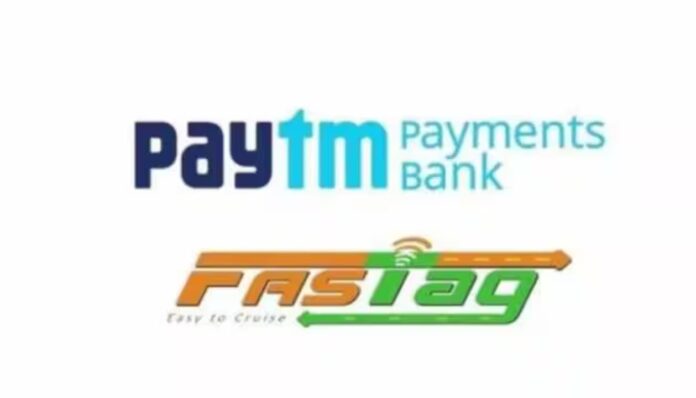After February 29, what happens to your Paytm FASTags? Citing non-compliance and “material supervisory concerns in the bank,” the Reserve Bank of India (RBI) on Wednesday imposed severe restrictions against Paytm Payments Bank Limited, an affiliate of the digital payments company Paytm.
With the exception of interest, cashbacks, or refunds that may be credited at any point, the central bank stated: “No further deposits or credit transactions or top-ups shall be allowed in any customer accounts, prepaid instruments, wallets, FASTags, NCMC cards, etc. after February 29, 2024.”
What occurs to FASTags on Paytm after February 29th?
Does this imply that after February 29th, your Paytm FASTags will no longer function? It is evident that customers will not be able to top off or recharge their Paytm FASTags using the Paytm Wallet in accordance with the RBI’s directive.
The parent company of Paytm, One97 Communications Limited (OCL), informed the stock markets in a comprehensive statement today that “user deposits in their savings accounts, Wallets, FASTags, and NCMC accounts, where they can continue to use the existing balances,” would not be impacted by the RBI’s action.
It is unclear from the company’s statement how Paytm FASTags would continue to function given that they can be refilled using the Paytm Wallet, which will likewise be blocked after February 29.
Furthermore, a number of other important banking services have also been blocked.
It’s crucial to remember that Paytm customers can easily use the balances that are now in their PPBL account, Paytm Wallet, or FASTag. The directive from the RBI expressly prohibits credit top-ups made after February 29.
Going ahead, OCL will not be collaborating with Paytm Payments Bank Limited; instead, it would only work with other banks.
The parent company of Paytm stated that OCL’s next step is to keep growing its financial services and payments business—but only in collaboration with other banks.
This suggests that Paytm would now collaborate with additional outside banks to prevent service interruptions.
Additionally, the business stated that it anticipates a “worst case impact” on its future annual EBITDA of between Rs 300 and Rs 500 crore.
The Company anticipates that, in the worst scenario, this action will have an impact on its future annual EBITDA of between Rs. 300 and 500 crores, depending on the form of the resolution.
The announcement also stated that “the Company expects to continue on its trajectory to improve its profitability.”




























